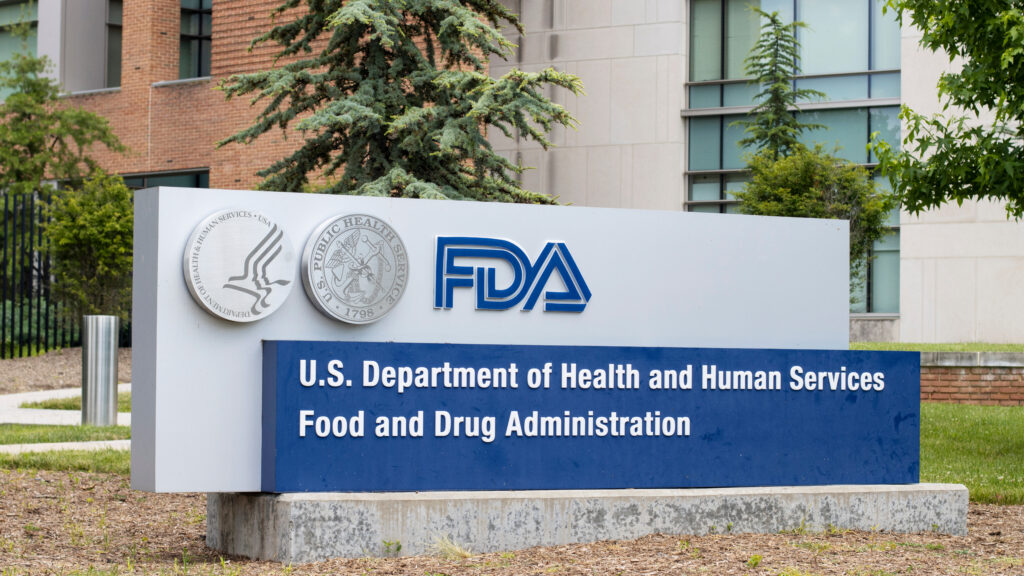The U.S. Food and Drug Agency is not really a singular agency. In practice, it operates more like five or more “FDAs” — each covering drugs, devices, food, cosmetics, or tobacco — combined into one. A mother looking for safe baby formula and fresh vegetables might associate the FDA with various food safety crises. A biologist seeking to turn her breakthrough into a medicine might associate it with global leadership in regulatory science. This divergence leads to misunderstandings of where trust and blame ought to fall.
For instance, to the general public, reputational damage from FDA’s mishandling of food safety is frequently blurred into distrust toward the broader agency, including the divisions that oversee drug safety.
advertisement
With Robert F. Kennedy Jr. potentially overseeing health agencies that include the FDA, let’s separate the FDA into two distinct entities. This can help to ensure that policies for improving food safety do not inadvertently harm drug safety, and vice versa. We can come up with the exact names later, but there should be one “FDA” for drugs and devices and a second for food, cosmetics, and tobacco.
I am a patient, and also a biotech investor who works in areas like cancer and autoimmunity. I am a father, and also a teacher to biology graduate students. I take seriously the failings of our health care institutions, as well as their strengths.
The FDA is a top — maybe even the top — regulator in the world for approving new medicines. Trust in the FDA’s drug approval authority is an essential ingredient for America’s greatness in biomedical breakthroughs.
advertisement
As an investor, I know that if a startup biotech company or academic laboratory can comply with the FDA’s quality standards, then they are likely good enough for other regulators across the globe. As a patient, I need to trust that a potentially lifesaving pill that I take before bed at night is not fraudulently marketed snake oil.
Snake oil, it turns out, motivated the founding of the FDA. The term “snake oil” arose out of a controversy from the late 1800s, when hucksters would sell elixirs claiming to be anti-inflammatory snake oil. Most of these products contained no snake oil and had no health benefits, sometimes even causing harm to consumers.
A consumer advocate named Harvey W. Wiley started the FDA in 1906, through the Pure Food and Drug Act, in part a response to the snake oil problem. Wiley also had a passion for food safety. He was a chemist and the son of a farmer, and he dedicated the better part of his career to ensuring that the American people were not consuming tainted agricultural products. Wiley’s work included checking the quality of beef, dairy, and grains, as well as ensuring that products such as honey were pure, without harmful additives. Wiley later took on the inspection of drugs, which at the time were often closely related to foods and food products.
After Wiley’s tenure as the first head of the FDA, the agency would change and grow, as would the industries it regulates. Today, the FDA oversees countless products that affect our health and wellness, including food, tobacco, cosmetics, prescription drugs, vaccines, over-the-counter drugs, medical devices, diagnostics, and more. This breadth of activity is why the acronym “FDA” has such divergent connotations.
The FDA drug leadership is made up of medical doctors and Ph.D. scientists who take their jobs as civil servants seriously. They approve new medicines based on rigorous clinical studies and detailed manufacturing reviews. The drug-related divisions of the FDA sometimes make mistakes, and they should be held to a high bar. It can be too slow or conservative at times, too permissive at others. Whether thinking as an investor or as a patient advocate, I want regulators to strike an ethical balance between quality and speed. I also want us to be able to more openly discuss the errors when they do occur, to continually improve such a vital institution.
advertisement
Apart from public perception, breaking out drug oversight could also substantively improve the agency. As many industry executives know, innovation-focused organizations can struggle when they get large and complex, diluting both focus and accountability. While the drug division of FDA is not itself an “innovator” in the same way that a biotech company is, its success is intimately tied to its ability to stay abreast of cutting-edge technologies. The FDA, alongside industry, is responsible for figuring out how to how to monitor new types of medicines, from AI-designed mRNA cancer vaccines to automated manufacture of living cell therapies. A drug-focused “FDA” should be able to better tailor its policies to unlock the ability of its people to enable biomedical advances.
Americans are right to be concerned when we see rising rates of food allergies, infertility, and autoimmune diseases. Americans are right to be concerned in the face of months-long baby formula shortages. Americans are right to be concerned when food labeling can mislead them about the health effects of their foods. I — and, I believe, the vast majority of Americans — want the United States of America to be the country with the safest food and medicines in the world.
As we attempt to rebuild trust where it has weakened, let us preserve that which has not yet been lost. Save the FDA. Break up the FDA.
Lee Cooper is a biotechnology investor and teaches ethical bio-innovation at Tufts University and Dartmouth College.

